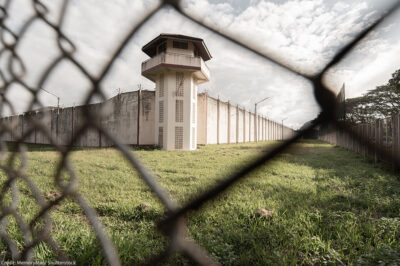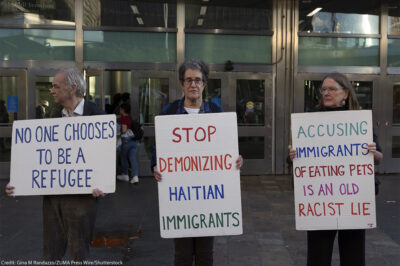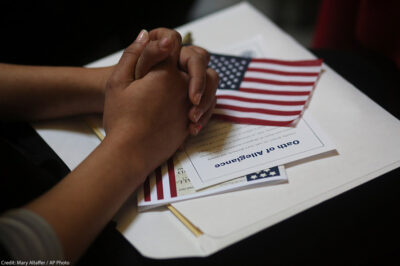U.S. Government Lawsuit Supports Indian Guestworkers' Claims of Discrimination and Abuse
Last week, the U.S. Equal Employment Opportunity Commission (EEOC) filed a lawsuit against Signal International, LLC, a company that builds and repairs ships and offshore oil drilling rigs. In its press release, the EEOC charges that the company violated "federal law by subjecting a class of approximately 500 Indian employees to human labor trafficking and a hostile work environment." The EEOC also said that the Indian workers' "living facilities, food and overall living conditions were intolerable, demeaning and unsanitary." The EEOC lawsuit alleges that Signal subjected the Indian guestworkers (or temporary workers) to this environment based upon the workers' race and national origin, treated them in a hostile and discriminatory manner compared to other Signal employees, and retaliated against the Indian workers who tried to oppose Signal's illegal conduct.
The allegations made by the EEOC against Signal mirror the claims the ACLU and our co-counsel (Southern Poverty Law Center, Asian American Legal Defense and Education Fund, Louisiana Justice Institute and the law firm of Dewey & LeBoeuf) brought in a separate lawsuit on the Indian workers' behalf. Our lawsuit, brought against Signal and its co-conspirators, was filed in 2008 and alleges the workers were unlawfully trafficked into the U.S. to work in Signal shipyards in Mississippi and Texas after Hurricane Katrina. Our lawsuit also charges Signal and its co-conspirators fraudulently promised the workers green cards and long term jobs, and once they were here, exploited workers' immigration status by defrauding them out of adequate payment for their work and subjected them to psychological coercion and threats of serious harm. Both the EEOC's and our lawsuits claim that Signal forced the Indian workers to live in unsanitary, overcrowded, and racially segregated labor camps.
In February, the ACLU and co-counsel filed a motion asking the court to include hundreds of additional Indian guestworkers in our lawsuit. If class certification is granted, our lawsuit could be the largest human trafficking case in U.S. history.
Learn more about workers' rights: Subscribe to our newsletter, follow us on Twitter, and like us on Facebook.




